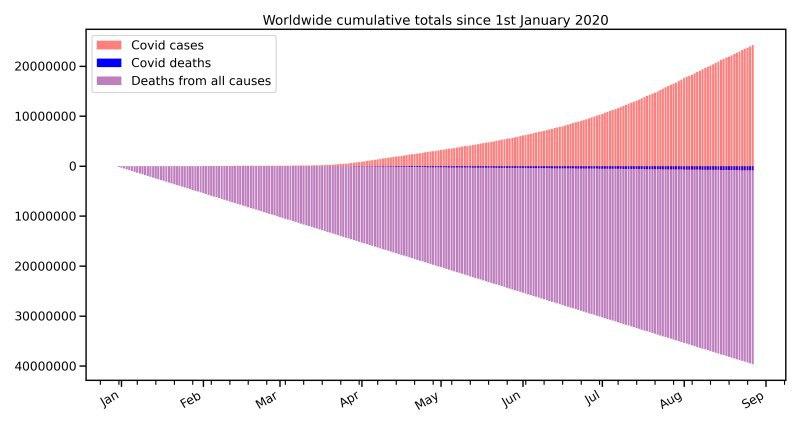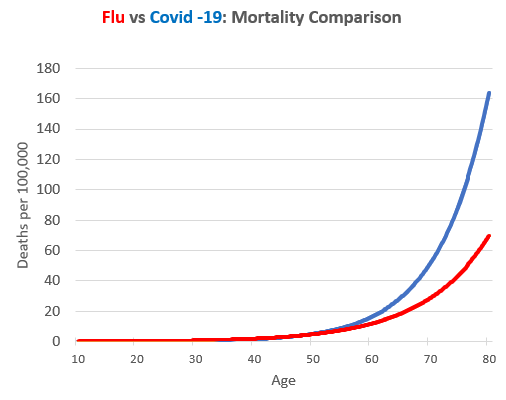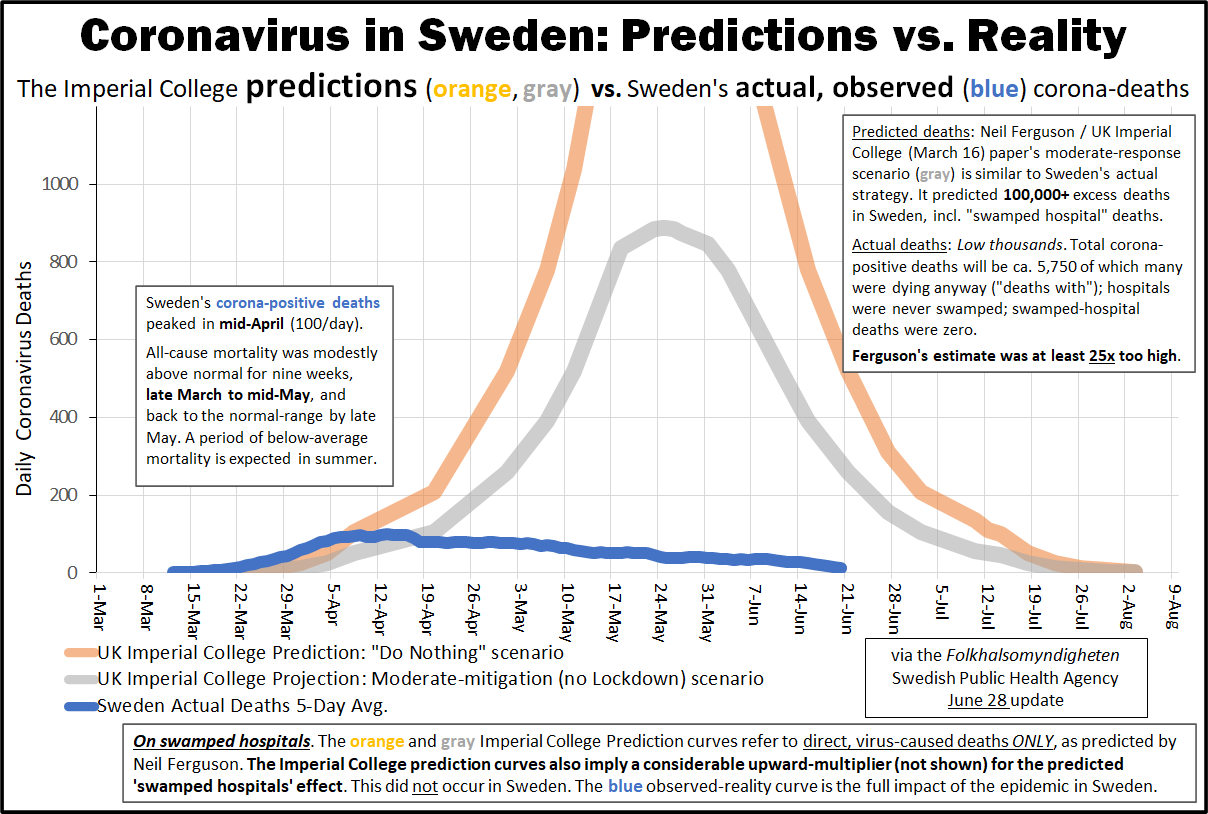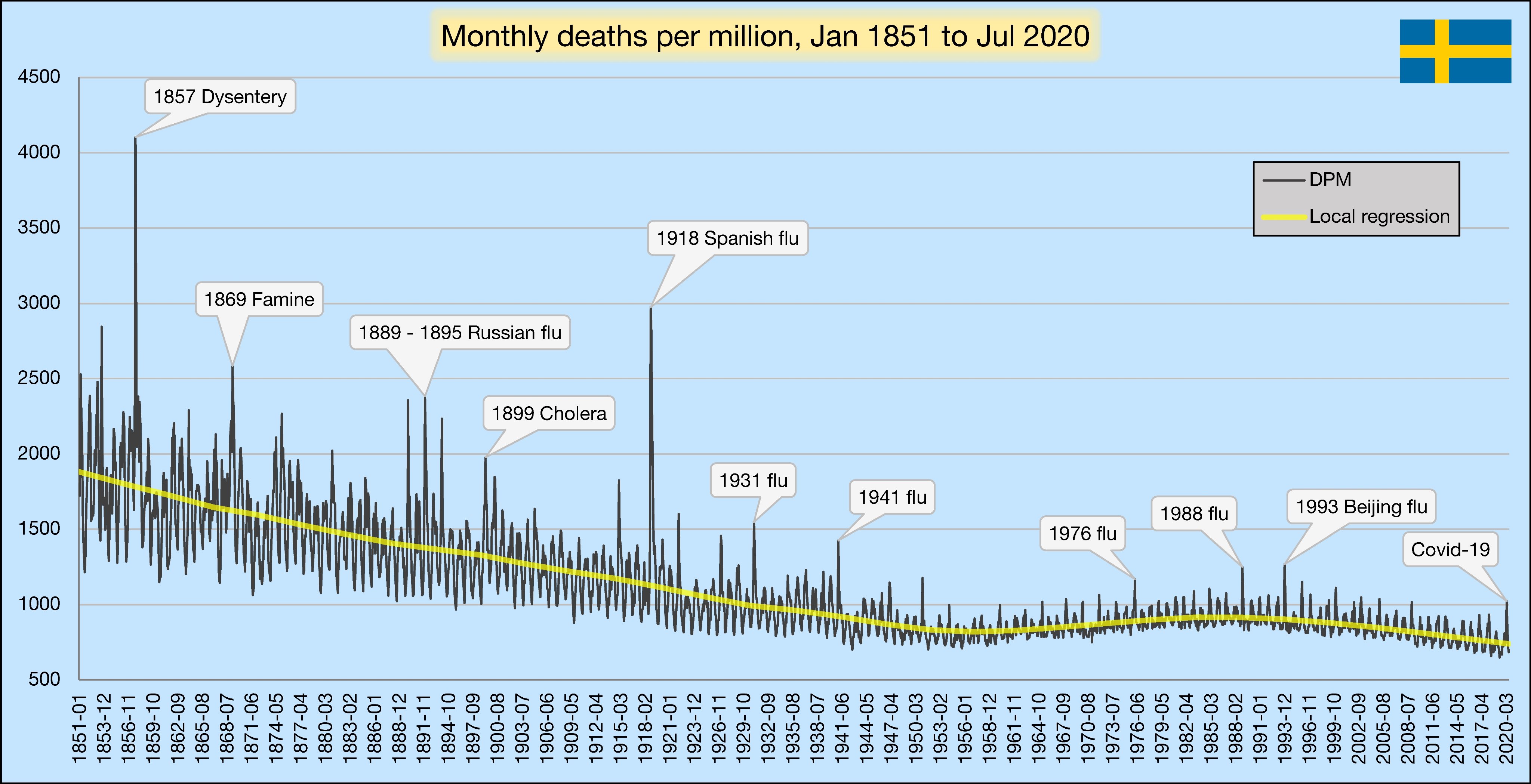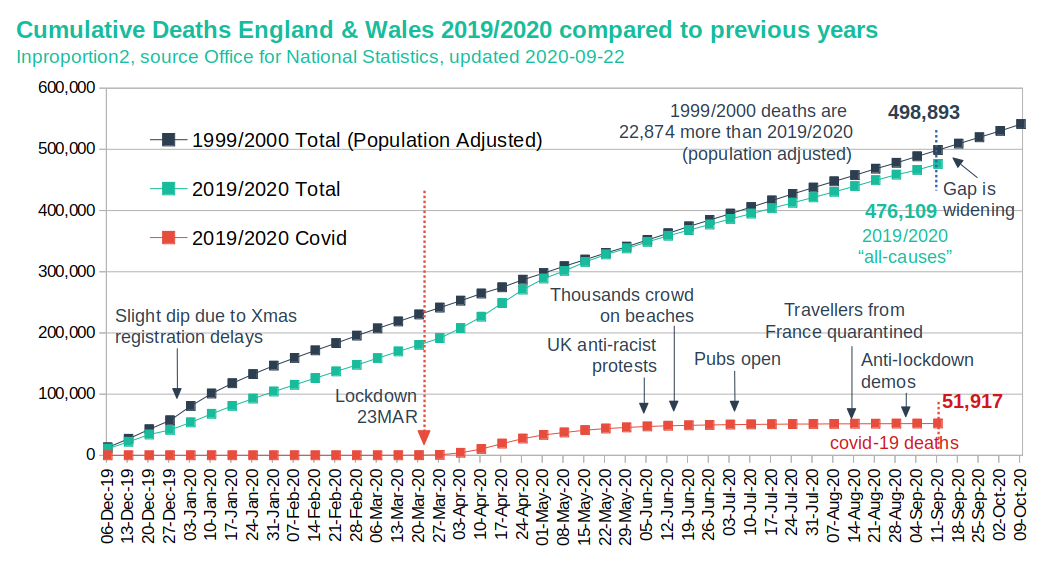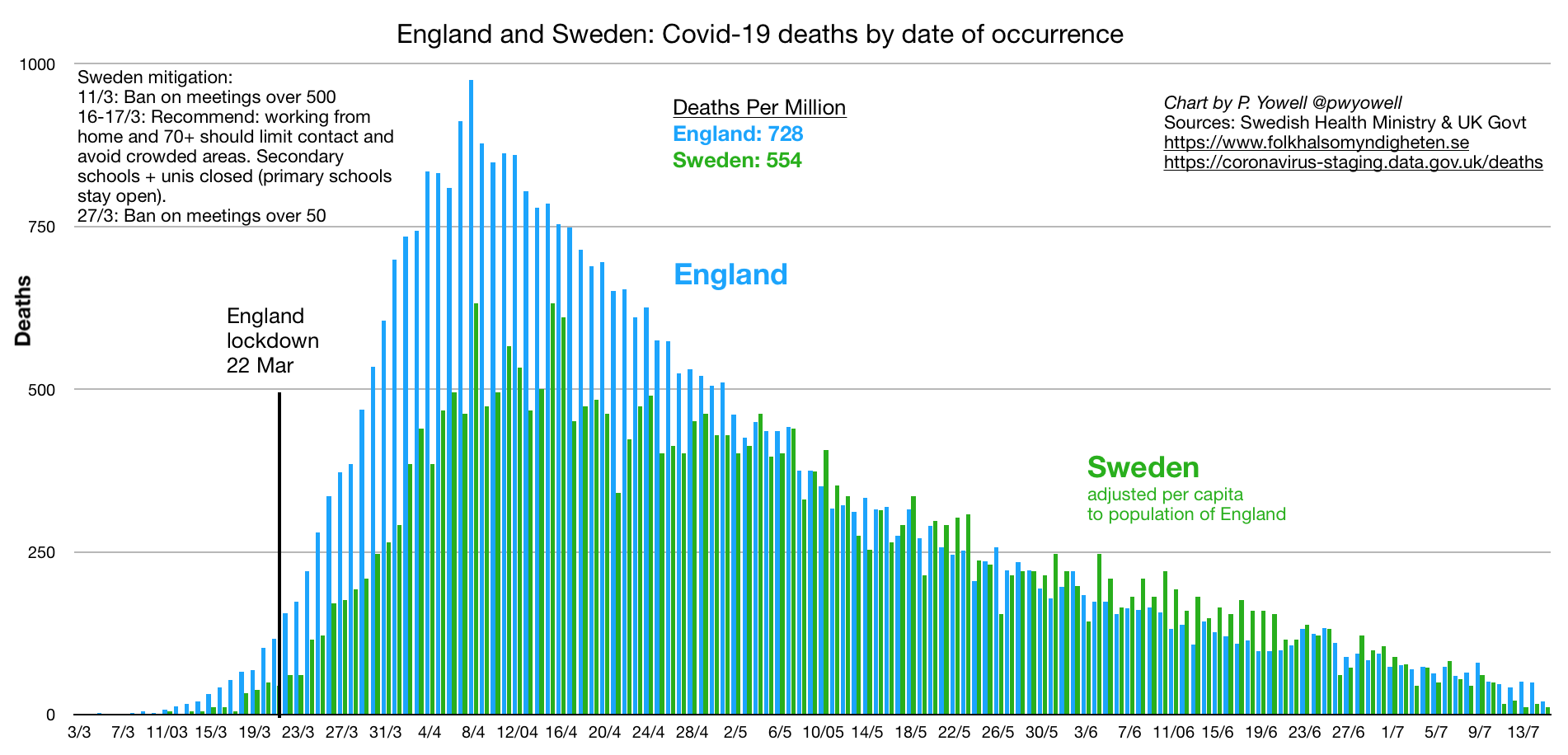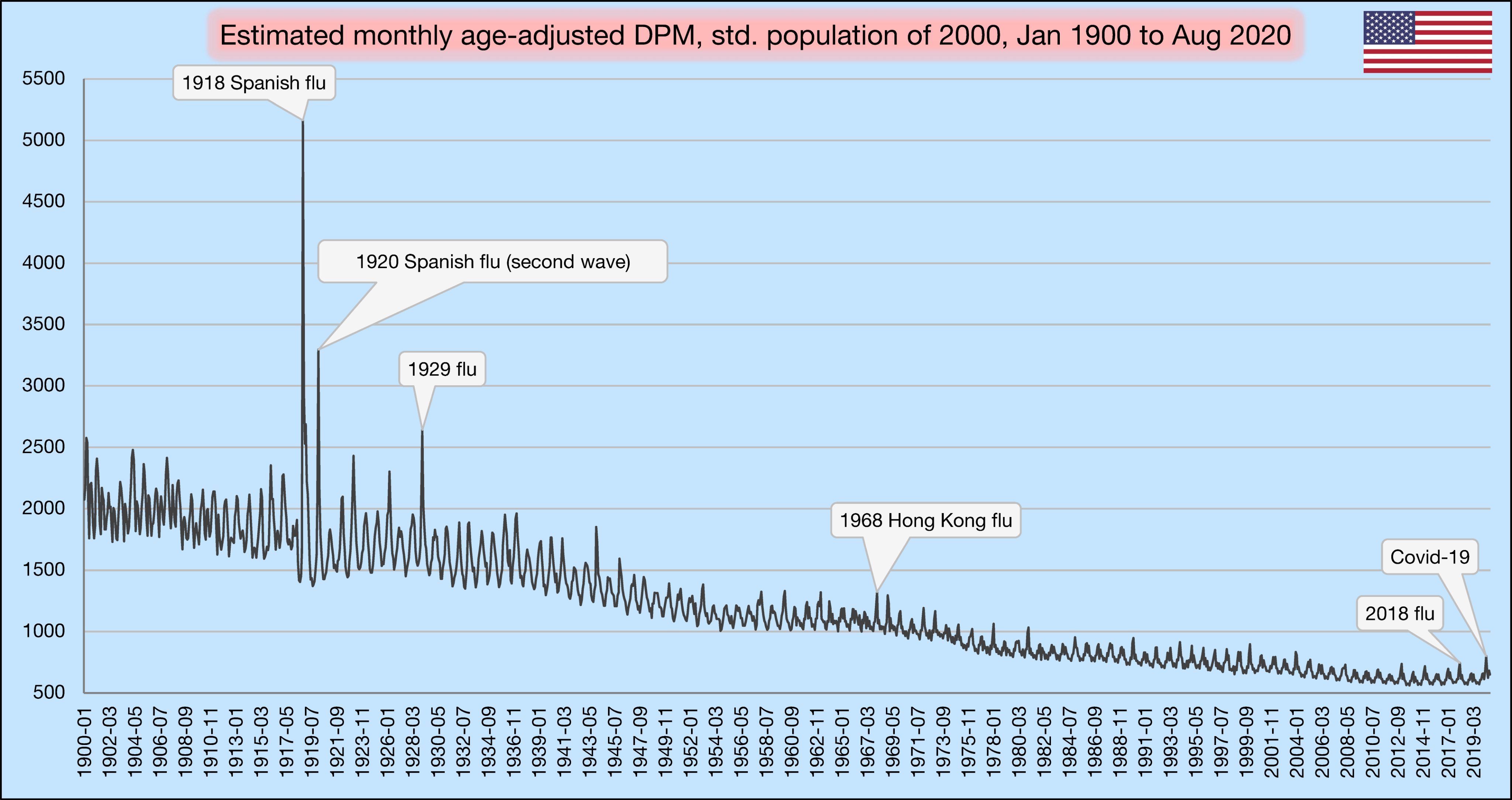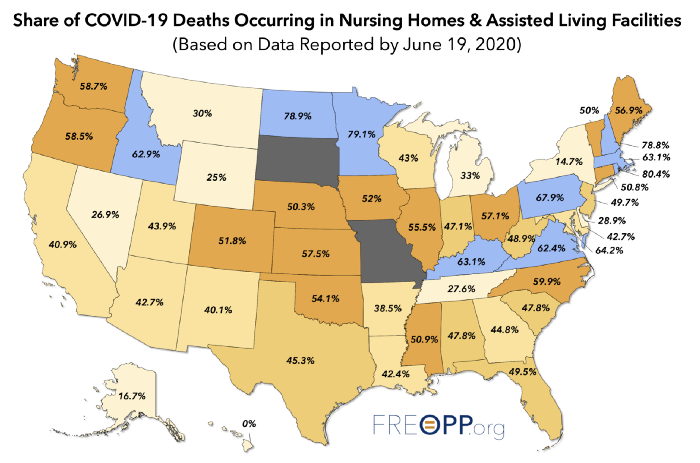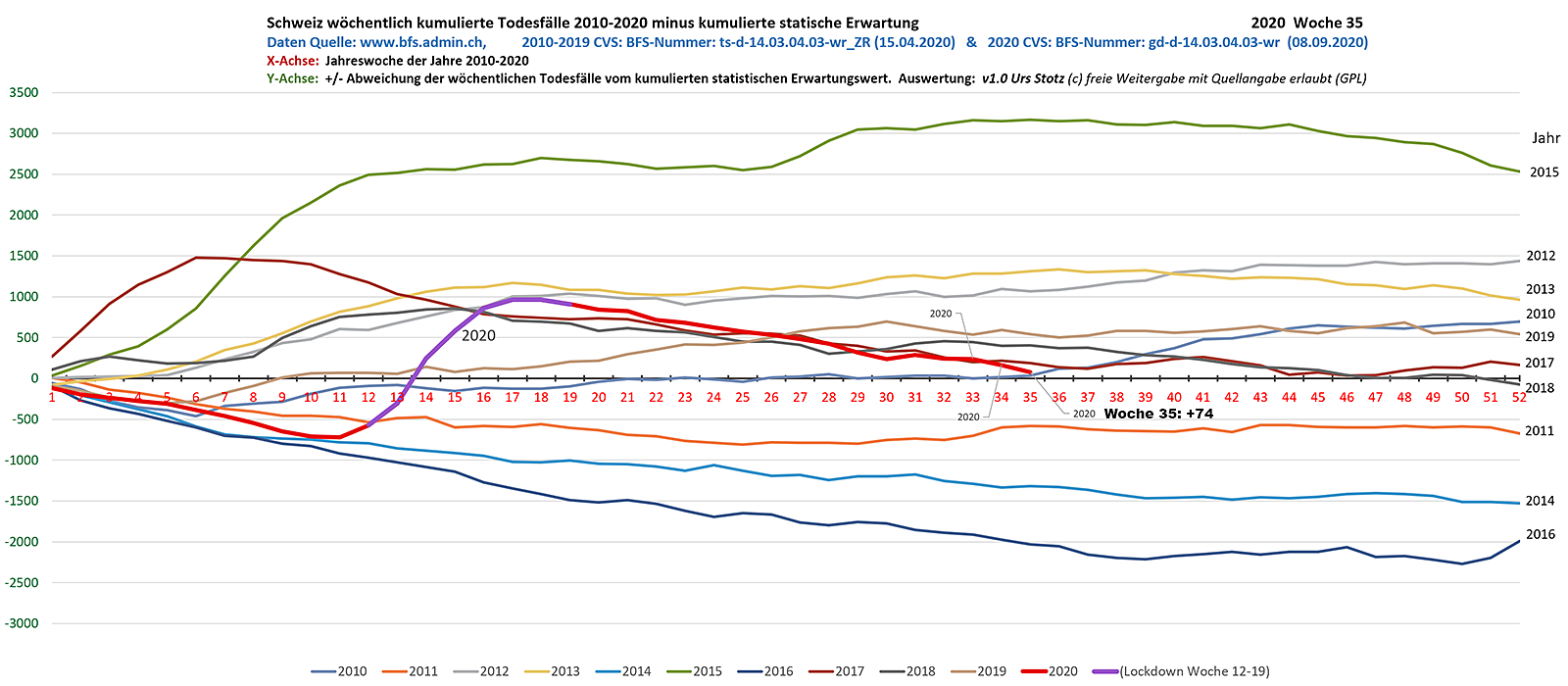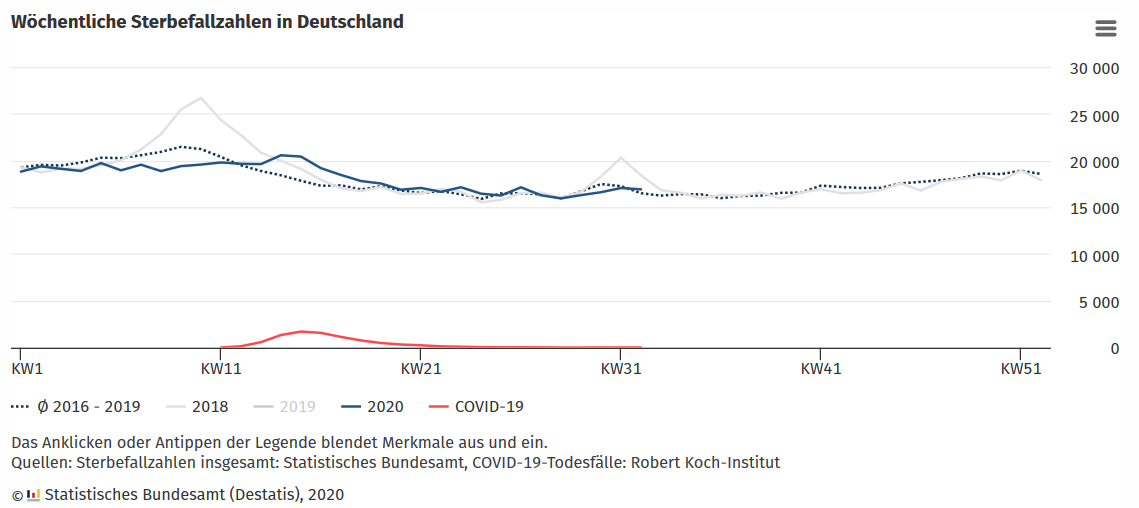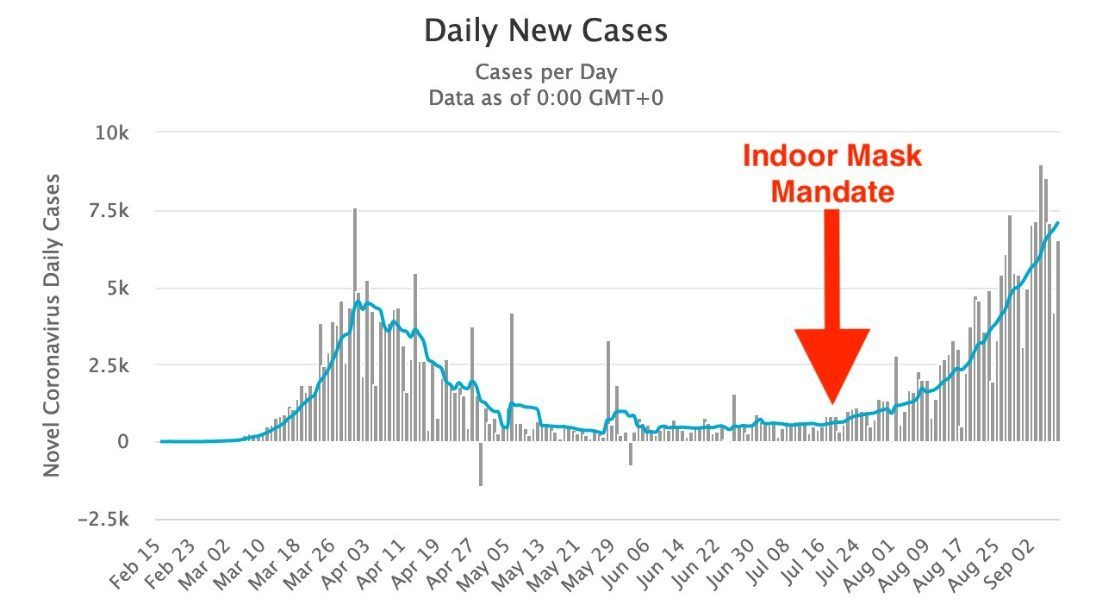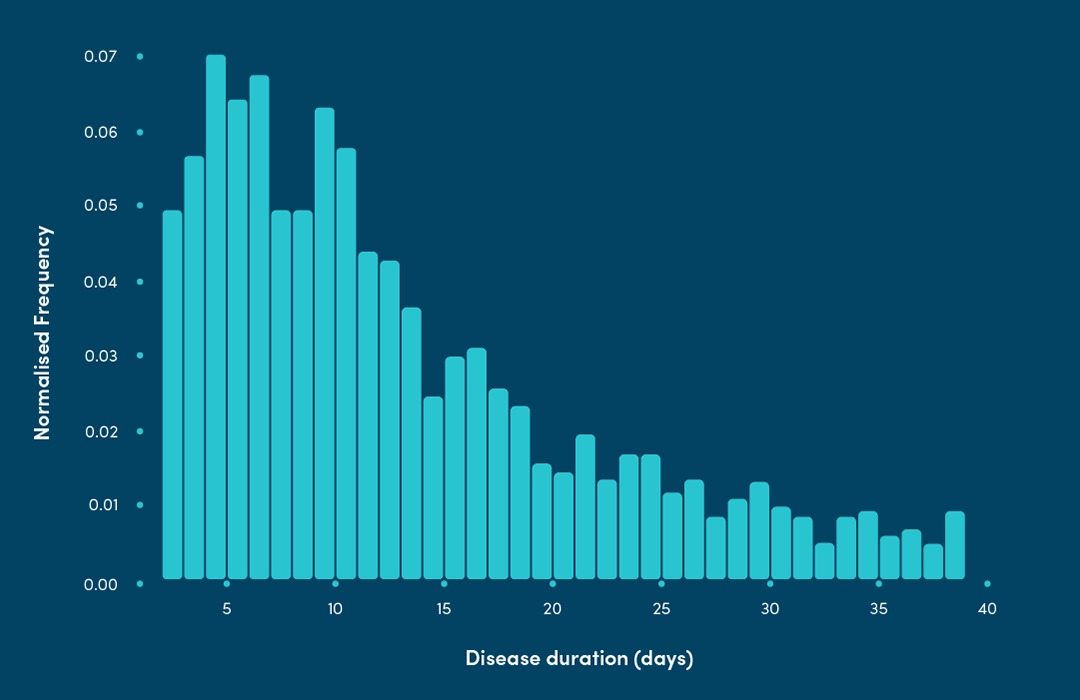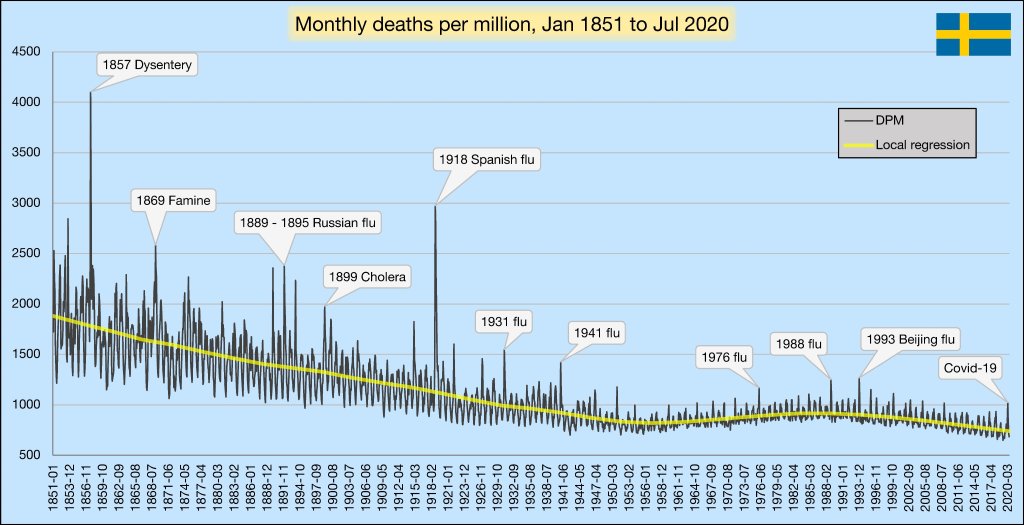Facts about Covid-19
Fully referenced facts about the alleged COVID-19 illness, provided by experts in the field, to help our readers make a realistic risk assessment. (Regular updates below).
“The only means to fight the plague is honesty.” (Albert Camus, 1947)
Overview
- Lethality: According to the latest immunological studies, the overall infection fatality rate (IFR) of covid-19 in the general population is about 0.1% to 0.5% in most countries, which is comparable to the medium influenza pandemics of 1957 and 1968.
- Treatment: For people at high risk or high exposure, early or prophylactic treatment is essential to prevent progression of the disease and avoid hospitalization.
- Age profile: The median age of covid deaths is over 80 years in most countries and only about 5% of the deceased had no serious preconditions. In contrast to pandemic influenza, the age and risk profile of covid mortality is thus comparable to normal mortality and increases it proportionally.
- Nursing homes: In many Western countries, up to two thirds of all covid deaths have occurred in nursing homes, which require targeted and humane protection. In some cases it is not clear whether the residents really died of covid or of weeks of stress and isolation.
- Excess mortality: Up to 30% of all additional deaths may have been caused not by covid, but by the effects of lockdowns, panic and fear. For example, the treatment of heart attacks and strokes decreased by up to 40% because many patients no longer dared to go to hospital.
- Antibodies: By summer 2020, global hotspots such as New York City and Bergamo had reached antibody levels of approximately 25%. Capital cities such as Madrid, London and Stockholm were around 15%. Large parts of Europe and the US, however, were still below 5%.
- Symptoms: Up to 40% of all infected persons show no symptoms, about 80% show at most mild symptoms, and about 95% show at most moderate symptoms and do not require hospitalization. Mild cases may be due to protective T-cells from earlier common cold coronavirus infections.
- Long covid: About 10% of symptomatic people report post-acute or long covid, i.e. symptoms that last for several weeks or months. This also affects younger and previously healthy people with a strong immune response. The post-viral syndrome is known from severe influenza, too.
- Transmission: According to current knowledge, the main routes of transmission of the virus are indoor aerosols and droplets produced when speaking or coughing, while outdoor aerosols as well as most object surfaces appear to play a minor role.
- Masks: There is still little to no scientific evidence for the effectiveness of cloth face masks in the general population, and the introduction of mandatory masks couldn’t contain or slow the epidemic in most countries. If used improperly, masks may increase the risk of infection.
- Children and schools: In contrast to influenza, the risk of disease and transmission in children is very low in the case of covid. There was and is therefore no medical reason for the closure of elementary schools or other measures specifically aimed at children.
- Contact tracing: A WHO study of 2019 on measures against influenza pandemics concluded that from a medical perspective, contact tracing is “not recommended in any circumstances”. Contact tracing apps on cell phones have also failed in most countries.
- PCR tests: The virus test kits used internationally may in some cases produce false positive and false negative results or react to non-infectious virus fragments from a previous infection. In this regard, the so-called cycle threshold or ct value is an important parameter.
- Medical mismanagement: In the US and some other countries, fatal medical mismanagement of some covid patients occurred due to questionable financial incentives and inappropriate protocols. In most countries, covid hospital mortality has since decreased significantly.
- Lockdowns: The WHO warned that lockdowns have caused a “terrible global catastrophe”. According to the UN, lockdowns may put the livelihood of 1.6 billion people at acute risk and may push an additional 150 million children into poverty. Unemployment, bankruptcies and psychological problems have reached record levels worldwide.
- Sweden: In Sweden, total mortality without lockdown has so far been in the range of a strong influenza season. 70% of Swedish deaths occurred in nursing homes that were not protected quickly enough. The median age of the Swedish covid deaths is 84 years.
- Media: The reporting of many media has been unprofessional, has maximized fear and panic in the population and has led to a massive overestimation of the lethality and mortality of covid. Some media even used manipulative pictures and videos to dramatize the situation.
- Vaccines: Several medical experts warned that express coronavirus vaccines may be risky. Indeed, the vaccine against the so-called swine flu of 2009, for example, led to cases of severe neurological damage and lawsuits in the millions. In the testing of new coronavirus vaccines, too, serious complications and failures have already been reported.
- Virus origin: The origin of the new corona virus remains unclear, but the best evidence currently points to a covid-like pneumonia incident in a Chinese mine in 2012, whose virus samples were collected, stored and researched by the Virology Institute in Wuhan (WIV).
- Surveillance: NSA whistleblower Edward Snowden warned that the covid pandemic may be used to permanently expand global surveillance. In several parts of the world, the population is being monitored by drones and facing serious police overreach during lockdowns.
See also
- On the treatment of Covid-19
- Studies on Covid-19 lethality
- The evidence on face masks
- On post-acute (“long”) Covid
- On the origin of SARS-CoV-2
Overview diagrams
Global covid deaths and cases vs. global all-cause deaths
Flu vs. Covid mortality by age (CDC)
Sweden: Predicted vs. actual deaths
Sweden: Mortality since 1851
UK: Mortality 2020 vs. 2000
Corona deaths: Sweden vs. England
US: Monthly age-adjusted mortality since 1900
Covid deaths in New York vs. Florida
US: Cases vs. deaths
US: Percentage of care home deaths
Percentage of care home deaths
US recessions in comparison
Switzerland: Cumulative excess mortality (2010-2020)
German mortality 2017-20
France: Masks and cases
Covid symptoms duration
September 2020
Medical updates
- Covid lethality: Most Western countries report a covid lethality (IFR) of about 0.3% in the general population (excluding nursing homes). The IFR may be even lower as antibody tests appear to miss about half of all infections. The IFR is higher if there was a local collapse of health care or elderly care. Countries with a younger population report lower IFRs: India reports about 0.1%, African countries report about 0.01%. Read more.
- Why covid is a “strange pandemic”: Why does covid-19 appear to be a somewhat strange pandemic? It is because of the covid-19 mortality profile, which is almost identical to natural mortality. But this doesn’t mean covid is just a “casedemic”. Read more.
- Face masks: Evidence from around the world indicates that cloth face masks used by the general population have little to no impact on coronavirus infection rates. The WHO study on face masks and social distancing turned out to be seriously flawed.
- Treatment of covid-19: Early or prophylactic treatment of covid-19 is essential to prevent progression of the disease. New studies confirm the effectiveness of zinc, vitamin D, bromhexine and malaria drug HCQ in early treatment of high-risk patients. Read more.
- Disease mechanisms: Several new studies show that (severe) covid is first and foremost a cardiovascular disease that causes thrombosis (blood clotting) and lung embolism by damaging the blood vessels. This explains the age and risk profile of covid-19 mortality.
- Post-acute (“long”) covid: About 10% of symptomatic people, including young and healthy people, develop “long covid” that may last for several weeks or months. Of particular concern is the impact of the new coronavirus on the heart muscle. Read more.
- PCR tests: As previously reported, many of the people testing positive may not carry infectious virus. A new analysis now confirms that in the US, up to 90% of positive PCR tests may have been “false positives” detecting non-infectious virus fragments.
- Origin of the new coronavirus: Evidence is increasing that the new coronavirus may be linked to a covid-like pneumonia incident in a Chinese mine back in 2012. Read more.
- Children: The risk of transmission and disease in children continues to be extremely low. The following chart shows cases and hospitalizations of children in Florida.
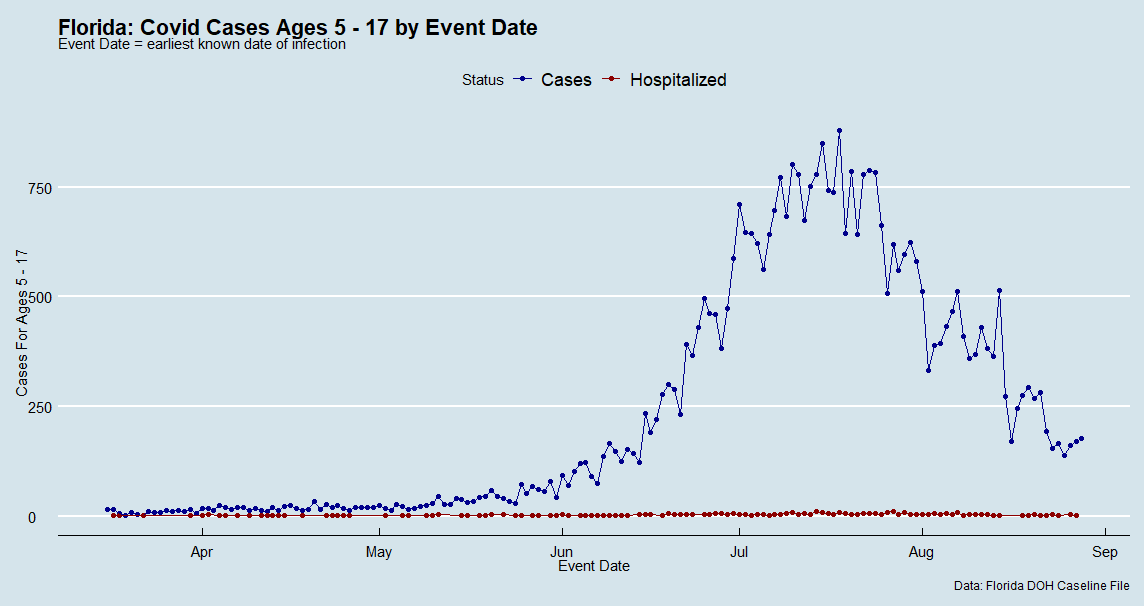
Country profiles
In large parts of previously locked-down Europe as well as in parts of the US, antibody values are still rather low and the risk of a renewed increase in coronavirus infections and disease is therefore high. Read our latest covid-19 country profiles:
- USA: Several short regional waves, mortality comparable to 1957/68 flu pandemics
- Germany: No excess mortality so far, but still very low antibody values
- Sweden: No lockdown, no masks, mortality comparable to strong flu wave.
- Japan: No lockdown, but by far lowest mortality among G8 countries.
- Australia and New Zealand: Last Western countries following a zero-covid strategy
- Africa and Latin America: Lowest and highest covid mortality in the world.
- Belarus: Very low covid mortality despite no lockdown; unique demographics.
- Belgium: Very high mortality; 66% of deaths occurred in nursing homes.
- Italy: Huge differences between northern and southern Italy.
- Nembro (Italy): The hardest hit place in Europe. What happened?
- Switzerland: Low mortality in spring, but very low antibody values.
Political updates
- IMF, World Bank: Covid lockdowns and economic recession may drag 100 million people into extreme poverty and set back poor nations by ten years.
- Professor Mark Woolhouse (UK): Lockdown will come to be seen as a “monumental mistake on a global scale” and must never happen again. The equivalent of 400 million jobs have been lost world-wide, 13 million in the U.S. alone.
- Australia: Extreme lockdown in Melbourne (Victoria) – more suicides than covid deaths.
- Germany: German police may have staged a run on the federal parliament in order to discredit a peaceful protest by about 100,000 people against political corona measures.
- Contact tracing: Back in May, Google and Apple implemented a “contact tracing” interface into three billion mobile phones. In early September, they integrated it even deeper into their operating systems, enabling contact tracing without an official app and on a global scale. From a medical perspective, there is still no evidence that “contact tracing” reduces the covid infection rate. Swiss IT professor Serge Vaudenay warned that the Google-Apple interface is not transparent and may record every single contact.
- Vaccines: Covid vaccine manufacturers have received a liability waiver in most countries. The Oxford vaccine trial has been suspended after a serious neurological adverse event occurred. A Belgian journalist moreover reported temporary fever, severe chest pain, “glowing hot legs” and loss of all feeling in his fingers after receiving another covid vaccine.
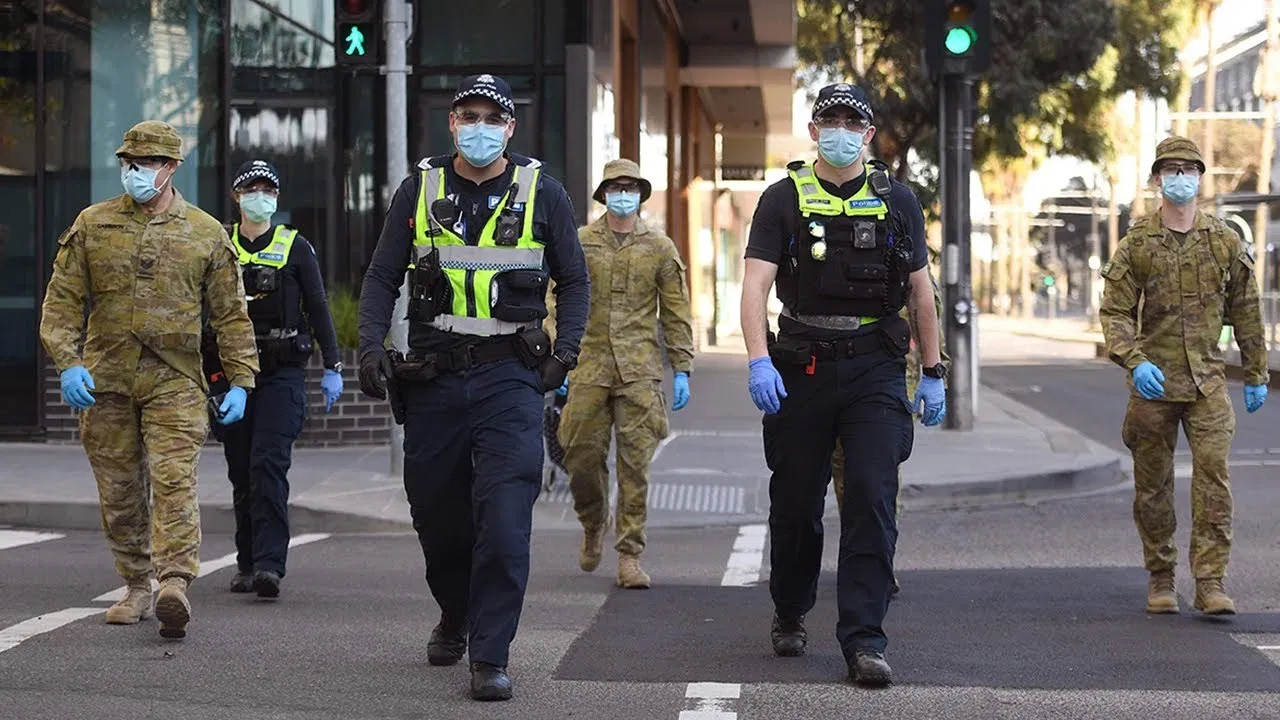
Additional resources
For daily covid updates from an independent perspective, see also Lockdown Skeptics (UK), CovidInfos (France), and Corona Transition (Switzerland/Germany/Austria).













